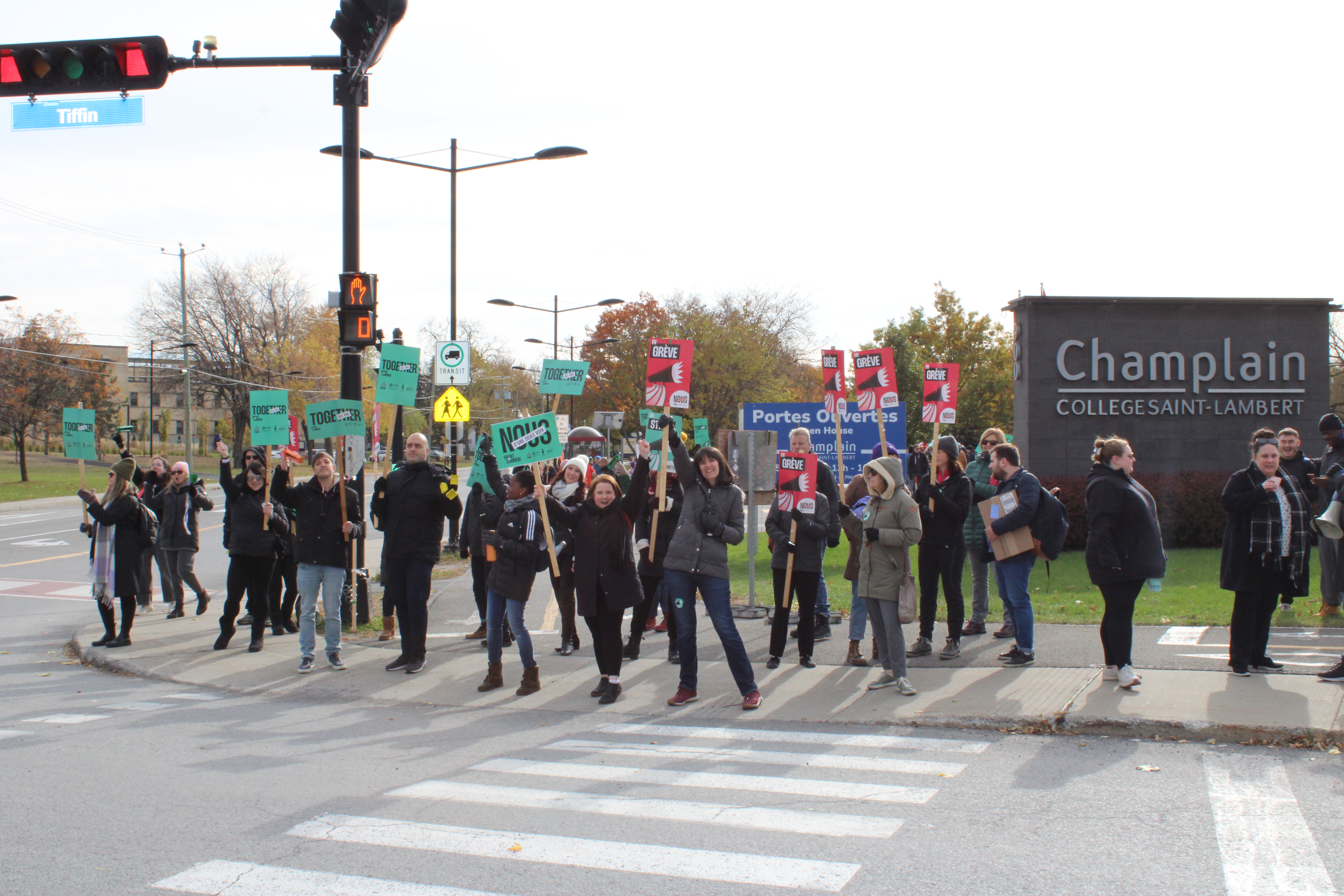Denise Albert, President of the Champlain College Teachers Association gives us some insight into the strikes.
The Champlain teachers are members of the Champlain College Teachers Association (CCTA), which is affiliated with the Fédération nationale des enseignantes et enseignants du Québec (FNEEQ), operating under the umbrella of the Confédération des syndicats nationaux (CSN), one of the biggest unions in Quebec. Together with the other major unions such as the CSQ, FTQ, and APTS, they collectively form the Front commun. So, whenever the Front commun decides to strike, the CCTA and the Champlain College Support Staff Union must participate, contributing to a combined workforce of 420,000 workers.
Why strike?
With inflation on a continuous rise and wages failing to match this trend, public sector workers find it imperative to strike. The proposed 9% salary increase over 5 years by the government falls short of meeting their needs. To provide context, a teacher starting with a bachelor’s degree earns $46,000 annually, while one starting with a master’s degree earns $52,000. The 9% increase equates to approximately a $4,500 rise over 5 years, averaging $900 per year. Teachers have various financial obligations such as mortgage payments, car loans, and other bills, which are significantly affected by inflation, especially due to increased interest rates. The proposed government increase will not match the rising prices over the years. A mere $4,500 increment fails to incentivize individuals to pursue a career in teaching, particularly when recruitment numbers are already low. Consequently, this increase does little to address the issue. Teachers are likely to face heightened workloads under these circumstances. Continuing to work under these conditions becomes increasingly challenging for them.
Ways to support
If you believe in their cause and want to support them, you can raise awareness by wearing red on Wednesdays and repost on social media posts pertaining to the strikes. If you want to be more involved get out there and “join [us] on the picket line and make some noise! [We] outnumber them 10 to 1.”
Before we conclude, Denise and Yannick Legault (Vice-President of the CCTA) did their best to accommodate us and took necessary steps to ensure we didn’t lose our semester. Furthermore, it’s untrue if you think that throughout the strike, the staff would just unwind at home. To be eligible for reimbursement from their strike fund—not all unions have one—they must take part in the strike. That reimbursement only “[covers] enough so that they can feed themselves”. So, the question for us now is: “What do you want for yourself in five years? Do you want to be making 55 000$ a year with no purchasing power or do you want to be part of the movement”?
